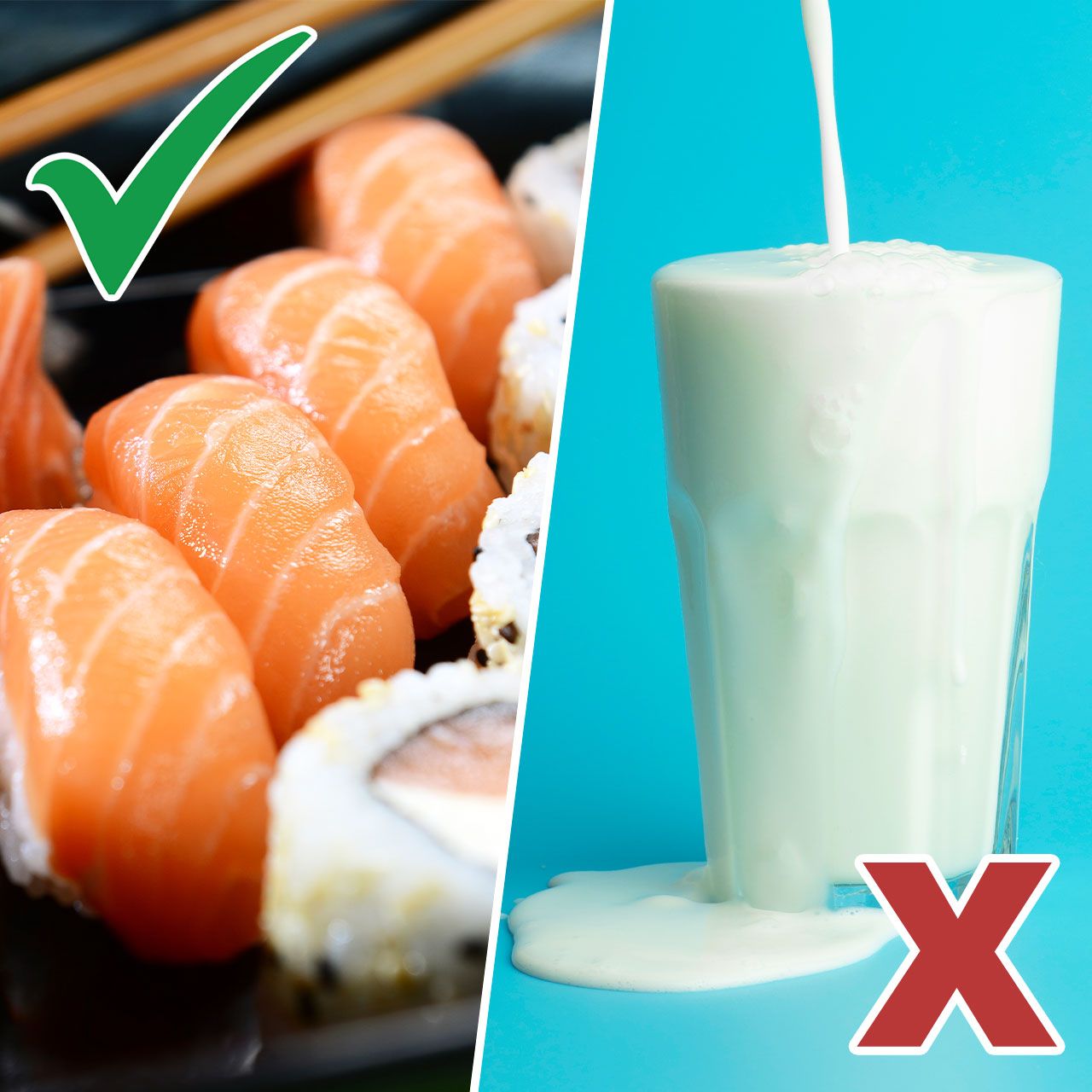Cholesterol plays a crucial role in the body, but when levels become too high—especially LDL (bad) cholesterol—it can increase the risk of heart disease and stroke. Diet is a major factor in maintaining healthy cholesterol levels, with some foods helping to lower it while others contribute to its rise.
We checked in with Johanna Angman, a registered dietitian and nutritionist, and Jesse Feder, RD at My Chron’s and Colitis Team, to discover the best and worst foods for your cholesterol levels. According to them, two of the best options are olive oil and fatty fish, while some of the worst options are full-fat milk and coconut oil. Read on to learn more.


Best: Olive oil
Olive oil is predominantly composed of monounsaturated fats, specifically oleic acid, which is known for its health benefits. The monounsaturated fats in olive oil help to lower LDL cholesterol levels, which is crucial for reducing the risk of heart disease.
Angman notes, "Extra virgin olive oil is packed with antioxidants and monounsaturated fats, which help reduce inflammation and improve cholesterol levels. It’s a staple in the heart-healthy Mediterranean diet."

Best: Fatty fish
Fatty fish are rich in omega-3 fatty acids, particularly EPA (eicosapentaenoic acid) and DHA (docosahexaenoic acid). These fats are essential for various bodily functions and have been associated with supporting weight loss efforts.
"Salmon, mackerel, and sardines are rich in omega-3 fatty acids, which lower triglycerides and reduce the risk of heart disease. Omega-3s also support weight loss by improving metabolic health," she reveals.

Worst: Full-fat milk
Milk is high in calcium, vitamin D, potassium, and more, all of which offer up benefits for your overall health. But Feder recommends steering clear of full-fat milk if lower cholesterol or a healthier heart is a priority for you.
"Milk is high in calories, fats, and saturated fats," he says. "This can lead to increases in body weight and LDL or bad cholesterol levels. Increases in unhealthy bodyweight and saturated fat consumption is linked to increased risk of heart disease."
Fortunately, there are better alternatives available—including non-dairy milks, which can help those that don't prefer full-fat milk.

Worst: Coconut oil
You've likely heard a thing or two about the benefits of coconut oil, whether you're putting it on your hair for extra shine and softness or adding it to meals for a bit of fat-burning power. However, if you're not careful, consuming too much of this stuff could lead to higher cholesterol.
"Coconut and coconut oil contain very high amounts of saturated fats," Feder says. "Saturated fats are linked to increases in LDL or bad cholesterol levels. When LDL increases so does your risk of heart disease and other cardiovascular diseases." Yikes!
While this food is general fine in moderation, limiting your intake is an important step to take.


























